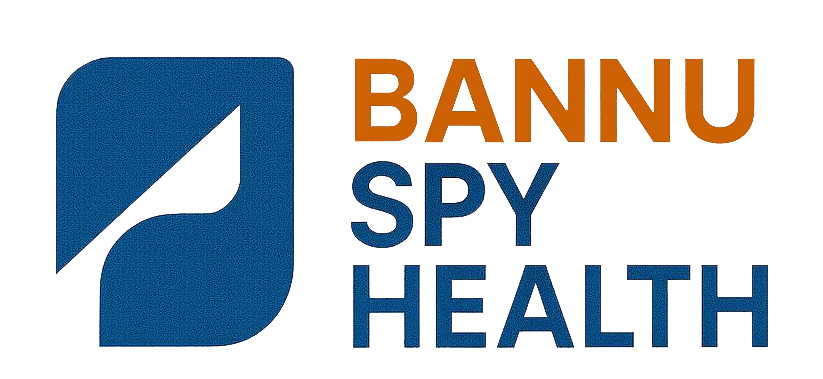In today’s ever-evolving healthcare landscape, CMS (Centers for Medicare & Medicaid Services) compliance is no longer a box to tick—it’s a strategic imperative. With growing regulatory scrutiny, value-based payment models, and digitized patient care, healthcare providers must stay compliant to avoid costly penalties, enhance reimbursement accuracy, and maintain a stellar reputation.
As CMS guidelines shift toward greater transparency, interoperability, and accountability, practices that don’t adapt are at risk. This blog will walk you through the future of CMS compliance and how partnering with an experienced RCM and audit services provider like Bannu Spy Health can safeguard your practice’s future.
Understanding the Importance of CMS Compliance
CMS governs a major portion of the U.S. healthcare reimbursement system. Compliance involves adhering to:
- Medical coding standards (like ICD-10, CPT, HCPCS)
- Timely and accurate claim submissions
- Proper documentation for all services rendered
- Patient privacy and security (HIPAA)
Non-compliance can result in:
- Denied or delayed claims
- Hefty fines and repayments
- Increased scrutiny via audits
- Loss of provider licenses or CMS contracts
With so much at stake, ensuring your billing, coding, and documentation align with CMS standards is crucial.
What’s Changing in CMS Guidelines?
CMS is transitioning away from fee-for-service toward value-based care models, focusing on outcomes, efficiency, and patient satisfaction. Here are key changes shaping the future:
1. Value-Based Payment Models
Programs like MIPS (Merit-based Incentive Payment System) and APMs (Alternative Payment Models) tie reimbursements to quality scores, patient outcomes, and cost-efficiency.
2. Increased Audit Frequency
CMS has intensified audits to detect fraud, waste, and abuse. Automated and targeted audits are more frequent, requiring detailed documentation and coding accuracy.
3. Interoperability and Digital Reporting
New mandates require providers to report clinical and billing data electronically. CMS’s push toward FHIR (Fast Healthcare Interoperability Resources) aims to unify and streamline reporting.
4. Social Determinants of Health (SDOH) Reporting
CMS is encouraging practices to report non-clinical factors affecting health outcomes, which will be factored into care evaluations and reimbursements.
These shifts are complex—and often overwhelming—for internal billing teams. That’s where external experts come in.
Common CMS Compliance Pitfalls Practices Face
Even seasoned practices fall into compliance traps. Here are the most common mistakes:
- Upcoding/Downcoding: Misrepresenting the level of service provided, whether intentional or not, can trigger audits and penalties.
- Incomplete Documentation: Missing details in the patient’s medical record can lead to claim denials.
- Late Claims Submission: Filing claims outside CMS deadlines forfeits revenue.
- Poor Denial Management: Failing to follow up or appeal denied claims leads to lost income.
- HIPAA Violations: Data breaches or improper handling of patient records can incur massive fines.
Avoiding these requires constant vigilance, training, and up-to-date systems.
How Bannu Spy Health Ensures CMS Compliance
At Bannu Spy Health, we specialize in end-to-end revenue cycle management (RCM) and chart audit services tailored to meet CMS requirements. Here’s how we can help:
1. Accurate Medical Coding
Our certified coders ensure every service is coded correctly using the latest CMS and AMA guidelines, reducing claim denials and audit risks.
2. Thorough Chart Audits
We conduct proactive audits to identify documentation gaps, coding discrepancies, and compliance risks—helping you resolve them before CMS does.
3. Compliance-Focused RCM Services
From claim scrubbing to submission and appeals, our RCM team handles the entire revenue cycle with CMS compliance at its core.
4. Regular Staff Training & Education
We empower your team with ongoing compliance training, industry updates, and resources to stay current.
5. Real-Time Reporting & Insights
Our dashboards and reports help you track KPIs, compliance metrics, and revenue trends aligned with CMS benchmarks.
Real-World Impact: A Case Snapshot
A multi-specialty clinic partnered with Bannu Spy Health after experiencing a CMS audit scare. Within 90 days:
- Claim acceptance rates increased by 23%
- Audit risk scores dropped significantly
- Denied claims reduced by 40%
- Staff documentation accuracy improved after training
This proactive approach saved the clinic from a potential $100,000 penalty.
The Time to Act Is Now
CMS regulations are only going to get stricter. Delaying compliance improvements will only increase your exposure. Whether you’re a small independent practice or a growing group, now is the time to fortify your processes.
Partner with Bannu Spy Health to ensure:
- Total CMS compliance
- Higher reimbursement rates
- Reduced audit risk
- Streamlined operations
Let compliance be your competitive advantage.

